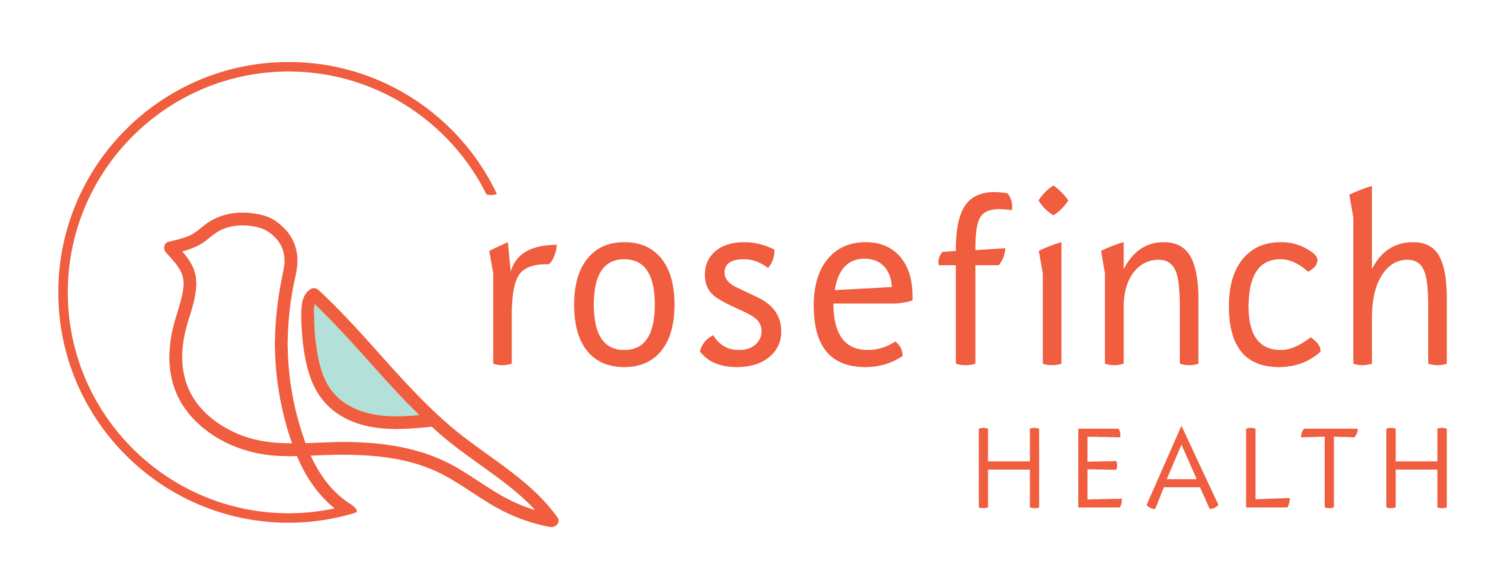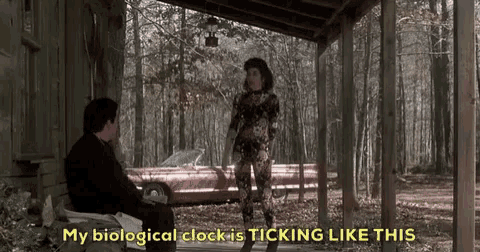Why does it take three months to see changes with acupuncture?
Time is an ever-present pressure point for women and people with ovaries trying to conceive. The mere mention of time can trigger panicked thoughts in even the most serene person considering having kids. After all, you only get about 12 shots per year (assuming everything's working normally), and then there's that ticking biological clock to consider. Unlike people with sperm, who produce fresh swimmers daily, those with ovaries are born with all the eggs they'll ever have.
In an iconic scene from My Cousin Vinny, Mona “Lisa” Vito paces the front porch of a cabin as her boyfriend, Vinny, fumbles through his first murder case. In a perfectly timed foot-stomping complaint, “My biological clock is ticking (stomp) like (stomp) this (stomp),” she gripes, perfectly capturing how stressful it feels when you want something badly. Time waits for no one.
When I first started as a fertility acupuncturist in the early 2000s, I was taught to ask patients to stop trying to conceive for at least three cycles so we could optimize their chances of success. It was always a conversation I had reservations about, especially for folks in their late 30s or 40s.
Clock is ticking! Like! This!
Why three cycles?
Biologically speaking, the ovary contains follicles, each encapsulating a single egg. At birth, women and people with ovaries are born with around 1 – 2 million eggs and will have ½ million remaining around the time of puberty. Each passing cycle sacrifices a small cohort of eggs for one follicle to emerge as dominant.
Here’s the wild part: the egg that gets ovulated this month actually started its journey about five cycles ago. Follicles go through a lengthy development process , transforming from a resting state to antral follicle (what gets counted on day 2 or 3 of a menstrual cycle during an ultrasound) to a mature follicle that is ovulated or retrieved for an in vitro fertilization (IVF) cycle.
As follicles develop, they become more sensitive to changes in blood flow, oxygen, hormones, and nutrition at approximately 85 days prior to ovulation. Access to these resources helps to ensure adequate support during follicular development, ovulation, and the release of progesterone after ovulation – another critical hormone in supporting pregnancy.
Enter the Acupuncturists
It takes about three cycles to see changes because we implement treatments that affect ovarian and reproductive organ blood flow, hormone and neurotransmitter secretion, access to nutrients and oxygen, and reduce inflammation and oxidative stress. The treatments also address blood sugar metabolism and increase insulin sensitivity. We provide acupuncture, electro-acupuncture or transcutaneous electro-acupuncture stimulation, photobiomodulation therapy such as infrared laser or red light, nutrition, movement, sleep support, digestive support, overall lifestyle support, and Chinese herbal therapy to optimize ovarian function, regulate menses, and prepare you to get pregnant, stay pregnant, and deliver a healthy baby.
The menstrual cycle also gives us valuable clues about what’s happening behind the scenes. Is ovulation too early or too late? Are the cycles regular? Is the period flow too heavy or light? Are the period pain or PMS symptoms overwhelming? These important details help us understand how efficiently your reproductive system is functioning and where we need to focus our attention during treatments.
When one is stressed, not sleeping well, eating poorly, not moving enough, having digestive issues, or feeling rundown, the reproductive system often mirrors these struggles.
The Reality Check
But here's where theory meets real life. When I consider everything—one’s current health, treatment effectiveness, financial investment, time pressure, limited opportunities, age, mounting stress from unsuccessful attempts, and the ethics of asking someone to wait—should I really ask someone to take three cycles off?
I often meet patients for the first time just as they're starting IVF or days before egg retrieval, asking for acupuncture support. Many are in their late 30s and 40s. Do I tell them to stop everything and wait three months?
No.
Instead, we work with where they are right now, understanding that the most significant improvements typically come after about three cycles.
Time and again, I see this pattern: the first cycle might not meet our exact hopes if we didn't have enough prep time, but outcomes consistently improve as we continue working together.
The Honest Truth
I want to be completely honest: a lot of the time, we see improvements. But there will be cases where we don't get the changes we hope for. Sometimes, hormone levels stay stubborn, embryos don't survive the IVF process, or pregnancy loss occurs. These heartbreaking moments are further complicated by what I know to be true. I know how much that person invested—emotionally, physically, and financially—in preparing for pregnancy and parenthood. It is a devastating disappointment not to achieve a desired goal.
Sometimes biology doesn't cooperate for reasons we can't fully explain. When this happens, we shift our focus to supporting whatever someone needs next.
Moving Forward
The three-cycle guideline isn't a rigid rule—it's a biological reality about how long meaningful change takes. While we can't control time or guarantee outcomes, we can work with your body's natural rhythms to create the best possible environment for conception.
Whether you're just starting to think about fertility support or you're already deep in treatment, remember that every cycle is an opportunity to improve your health and increase your chances. The investment in preparing your body isn't just about getting pregnant—it's about optimizing your health for pregnancy, birth, and beyond.
Every person’s journey is unique, and so is their timeline. We'll work with both, honoring the biology while respecting the very real time pressures.



